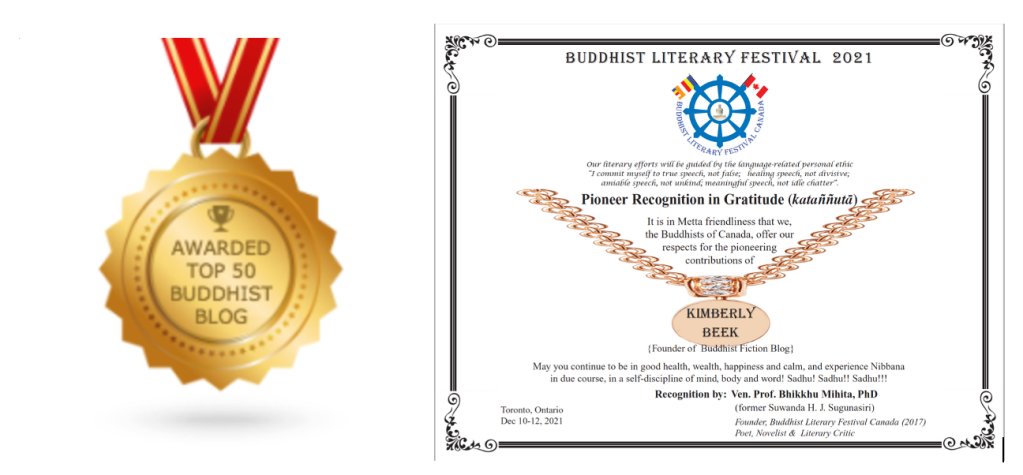HIDDEN BUDDHAS: A NOVEL OF KARMA AND CHAOS, by Liza Dalby, was published by Stone Bridge Press (2009). Here is the publisher’s description:
According to Buddhist theology, the world is suffering through a final corrupt era called mappô. As mappô continues, chaos will increase until the center can no longer hold. Then the world will end.
From this ancient notion of doom and rebirth comes a startling new novel by the acclaimed author of Geisha and The Tale of Murasaki. Hundreds of temples in Japan are known to keep mysterious “hidden buddhas” secreted away except on rare designated viewing days. These statues are not hidden because they are powerful—their power lies in their being hidden. Are they being protected, or are they protecting the world?
In this novel, one Buddhist priest struggles with the dictates of his inherited orthodoxy, while another rebels. An American graduate student begins to suspect the mysterious purpose of the hidden buddhas, just as he falls in love with a beautiful Japanese artist who is haunted by an aborted child. The weaving of karma that brings these two together results in a tech-savvy half-Western, half-Japanese child who text-messages her way through the profane world to enlightenment.
Tracing the lives of its characters through the late twentieth century to the present, from Paris to Kyoto to California, Hidden Buddhas turns a cosmopolitan eye on discipline and decadence in religion, fashion, politics, and modern life.
Please check back in a couple of weeks for discussion and questions.


